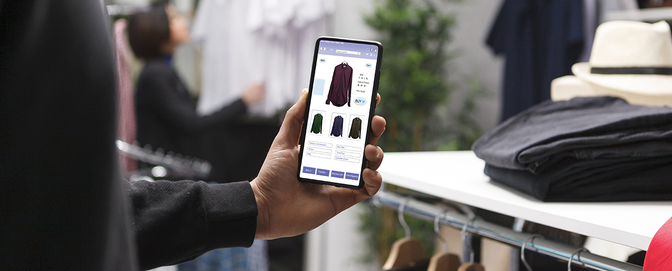
The impact of scaling empathy and how we do it at UserTesting

At UserTesting, we understand the impact that hearing directly from your target audience can have. And to go one step further, when it comes to truly understanding customer needs and frustrations, the power of listening to their voices and seeing their faces and nonverbal cues. However, oftentimes this information is limited to specific research, product, and UX groups, leaving the rest of the organization blind to the benefits of human insight.
Scaling empathy in your organization
Customer empathy is something that may have seemed like a buzzword or lip-service in the past, but it’s proven to be a competitive differentiator. Very rarely do we get pushback on the concept of scaling empathy (or putting human insight in the hands of everyone in an organization), in theory, but we’re often asked for practical tips on how to do so. With everyone’s schedules already overpacked, when is there any time to share insight—especially when it’s in the form of hours of video?
We’ve heard more and more from our customers that they’ve started holding regular UserTesting video “viewing parties” and that the discussions sparked at them have led to real breakthroughs when it comes to understanding their customers and developing actionable ideas.
Turning hours of video into empathy sessions
Putting our customers’ great idea to the test, we began holding monthly, company-wide Customer Empathy Sessions to ensure we’re all also getting in our empathy hours on a regular basis.
Here’s how we do it and how you can too!
1. Include everyone, and we mean everyone. Oh, and make it easy to join
We believe every single employee at UserTesting benefits from—and is able to do their job better—as a result of truly understanding our customers. That’s why our Customer Empathy Sessions are open to all, and everyone is encouraged to attend and participate. At these sessions we get together to watch recorded interviews with our customers, talking about their goals and problems. Some tips on how to get this started and how to maintain it:
- Rotate where and when the sessions are held and what the focus is so different parts of the organization are able to participate.
- Deploy your champions. Even at a company like ours that has built its culture around the importance of empathy, people get busy and urgent things come up. Our executives and leaders in the organization make it a habit to talk about the importance of these sessions, to reference specific learnings and actions that come out of them, and to remind us that attending will make us better at our jobs (and ultimately more successful as an organization). This reinforcement promotes employees to step away from their desks, rearrange meetings, and make attending these sessions both a habit and a priority.
- Make it easy. Our sessions are scheduled over lunch so that we can watch the videos and chat as we eat. And they’re recorded so that if we do miss them we can catch up later.
- Leave time for discussion after the videos. And take notes on findings.
2. Structure your customer interviews as empathy tests, not usability tests
Get them talking about themselves, and record it. The recordings can be through Live Conversation or recorded tests. When you’re putting together your questions for your empathy session videos, think about them more as a chance to get to know how your customers think and what’s important to them, and less about what they think about your product or service.
Some of our favorite questions include:
- Describe your role, what are you responsible for?
- How are you measured?
- What other roles/teams do you regularly interact with?
- What are your goals for the year?
- What are the biggest barriers to achieving those goals?
- What keeps you up at night?
At the viewing sessions, we strongly recommend screening the full interviews, not just excerpts. You want people to build empathy by hearing how customers talk and what their lives are like. It’s not about excerpts, it’s about understanding.
3. Give it time
Even the best habits can take a little time to become routine. If you’re working on starting a customer empathy program, or something similar at your company, have a little patience and persistence. Once a few people start gaining insights that make them think about taking a different, more customer-centric approach to a question or challenge, word will spread about the value of empathy hours and learning from and about your customers as a team.
In this Article






